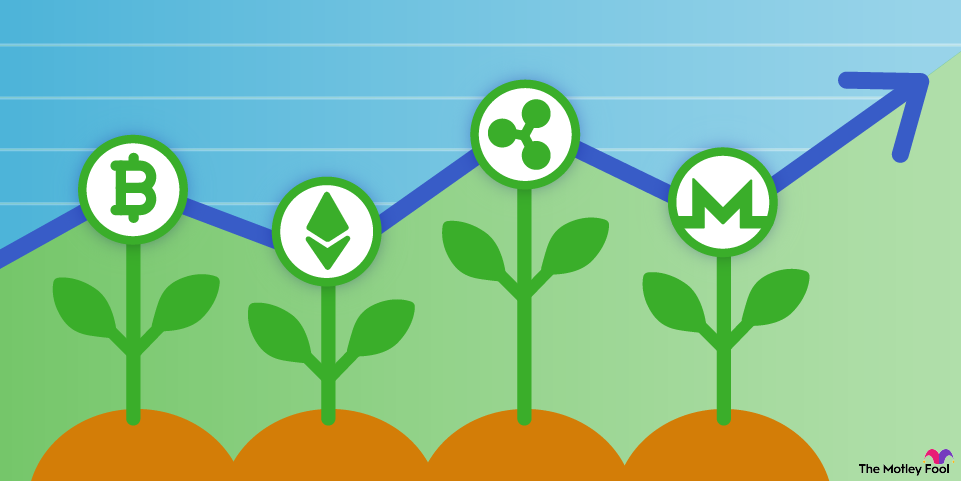Fintech is a combination of the words finance and technology. Fintech stocks represent shares in publicly traded financial technology businesses.
Fintech is a broad category made up of companies that apply new technology to financial businesses. For example, companies that develop new digital payment processing solutions are considered fintech; so are companies that build and operate person-to-person payment applications.
The potential of fintech is exciting. You might be surprised at how many cash-based transactions are still happening around the world and how many people still have their savings at brick-and-mortar banks that barely pay any interest. In this article, we'll take a look at the different types of fintech stocks, as well as some specific examples of promising fintech stocks you can buy right now.
Five top fintech stock investments in 2026
There's a ton of long-term potential in the fintech industry. And some fintech stocks look like especially strong opportunities right now, especially with interest rates elevated and consumers cutting back on discretionary purchases. With that in mind, here are five fintech stocks you might want to take a closer look at.
| Name and ticker | Market cap | Current price | Industry |
|---|---|---|---|
| Block (NYSE:XYZ) | $34.5 billion | $56.76 | Diversified Financial Services |
| PayPal (NASDAQ:PYPL) | $39.0 billion | $41.70 | Diversified Financial Services |
| SoFi Technologies (NASDAQ:SOFI) | $27.4 billion | $21.80 | Consumer Finance |
| Adyen (OTC:ADYE.Y) | $43.5 billion | $13.80 | Diversified Financial Services |
| MercadoLibre (NASDAQ:MELI) | $106.5 billion | $2,097.25 | Multiline Retail |
1. Block
Formerly known as Square, Block's product suite has evolved from a way for merchants to accept credit cards via mobile phones into a large-scale financial ecosystem for individuals and small businesses. Block now processes payments for merchants at an annualized rate of over $250 billion and has its own banking subsidiary (Square Financial Services) and a thriving small business lending platform.

NYSE: XYZ
Key Data Points
Cash App is especially interesting, with 58 million active monthly users as of early 2026 and virtually unlimited potential to build out its consumer financial service offerings. The platform already offers direct deposits, debit cards, the ability to buy and sell Bitcoin (BTC -2.67%), and a user-friendly stock trading platform. Cash App could still be in the early stages of monetization and have major upside potential in the future.
2. PayPal
PayPal Holdings is the undisputed leader in online payments -- and so much more. Its Venmo person-to-person payment platform has emerged as an industry leader, and its namesake PayPal brand continues to innovate the ways we pay for things both online and off.

NASDAQ: PYPL
Key Data Points
PayPal has a completely new executive leadership team that has been quite active when it comes to looking for ways to reinvigorate the business's growth. So far, the team has successfully boosted efficiency and rolled out exciting initiatives such as Fastlane checkout and the creation of an advertising platform.
With more than $14 billion in cash and investments on the balance sheet and $6 billion to $7 billion in annualized free cash flow, PayPal has the financial flexibility to pursue opportunities as they arise. The company has 438 million active accounts in more than 200 countries around the world. In a nutshell, this is a highly profitable industry leader, and there's no reason to believe that will change anytime soon.
3. SoFi Technologies
SoFi Technologies aims to disrupt the entire banking industry with its app-based financial ecosystem. The company offers checking and savings accounts, an investment platform, loans, credit cards, and more. It also owns the Galileo financial technology platform that provides the infrastructure for third-party clients' payment needs.

NASDAQ: SOFI
Key Data Points
SoFi has been growing rapidly for years and still has impressive momentum. In the third quarter of 2025, SoFi's membership base grew by 35% year over year, and adjusted earnings before interest, taxes, depreciation, and amortization (EBITDA) grew by 49%.
This could be just the beginning. SoFi's brand awareness in the United States is still under 10%, and it's still a relatively small bank. Management's stated goal is to become a top 10 financial institution, and it's definitely on the way.
4. Adyen
Adyen isn't exactly a household name to most U.S. investors, but it certainly belongs in the same conversations as Block and PayPal. Based in the Netherlands, Adyen provides payment processing solutions to businesses and has operations around the world (including a large U.S. presence). It offers payment solutions for in-person, online, and mobile channels.

OTC: ADYE.Y
Key Data Points
However, unlike the other major payment processing tech companies, Adyen focuses almost exclusively on large businesses. Microsoft (MSFT -2.86%), Uber (UBER -3.60%), and McDonald's (MCD +0.40%) all rely on Adyen for their payment processing needs. You may recall that eBay dropped PayPal as its preferred payment processor several years ago; that was in favor of Adyen.
Adyen's growth has been impressive, and the business processes almost $1.5 trillion in annualized payment volume. Plus, Adyen is highly profitable, with a 50% EBITDA margin that could get even better as the business scales.
5. MercadoLibre
MercadoLibre is often referred to as the Amazon (AMZN -1.79%) of Latin America, and the nickname certainly makes sense. The company has a massive e-commerce business with about $70 billion in annualized merchandise sales volume, and it continues to grow at an impressive pace.

NASDAQ: MELI
Key Data Points
The company also has a logistics platform (Mercado Envios) and a lending business (Mercado Credito), both of which have gained serious traction in recent years. Mercado Credito is especially interesting, with 83% year-over-year growth in the credit portfolio in the third quarter of 2025.
However, it's perhaps the Mercado Pago payments platform that is most exciting, at least from a fintech perspective. The business processes more than $250 billion in annualized payment volume and is growing at a much faster rate than the e-commerce business.
How to invest in fintech stocks
The process of investing in fintech stocks is a rather straightforward one, especially if you've already been investing in other stocks. But even if you haven't, here are the general steps:
- Open your brokerage app: Log in to your brokerage account where you handle your investments.
- Search for the stock: Enter the ticker or company name into the search bar to bring up the stock's trading page.
- Decide how many shares to buy: Consider your investment goals and how much of your portfolio you want to allocate to this stock.
- Select order type: Choose between a market order to buy at the current price or a limit order to specify the maximum price you're willing to pay.
- Submit your order: Confirm the details and submit your buy order.
- Review your purchase: Check your portfolio to ensure your order was filled as expected and adjust your investment strategy accordingly.
Types of fintech stocks
As mentioned, fintech is a broad term that refers to any company that applies technology to the world of finance. Here are some of the products and services fintech stocks might offer:
- Payment processing
- Online and mobile banking
- Online and peer-to-peer (P2P) lending
- Person-to-person payments
- Financial software
- Financial services
Benefits and risks of investing in fintech stocks
Fintech stocks can allow investors to get in on the latest trends in financial technology, including mobile banking, cryptocurrency, e-commerce, payment processing, and more. However, as is the case with any emerging technology, fintech stocks can be more volatile than the average investment. Keep this in mind before you decide to invest.
A great arena for long-term growth investors
Investing in fintech stocks isn't for investors with a low tolerance for volatility and risk. Like any exciting growth industry, fintech will likely be a bit of a roller-coaster ride as the industry matures. However, for long-term investors with relatively high risk tolerance, fintech stocks such as those mentioned here can be an excellent means of capitalizing on one of the most exciting growth trends in the business world.










